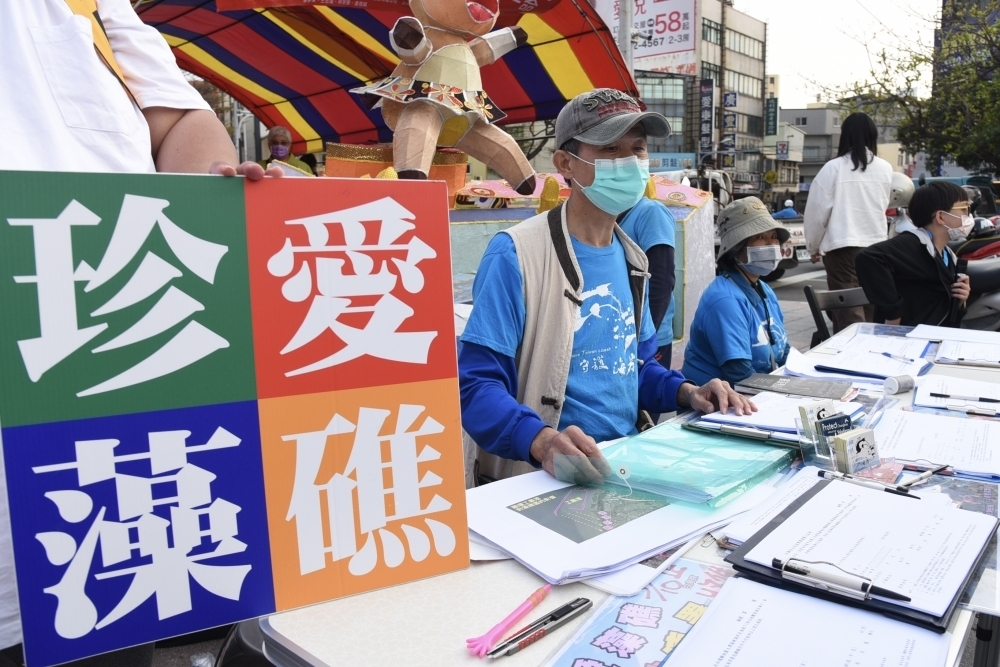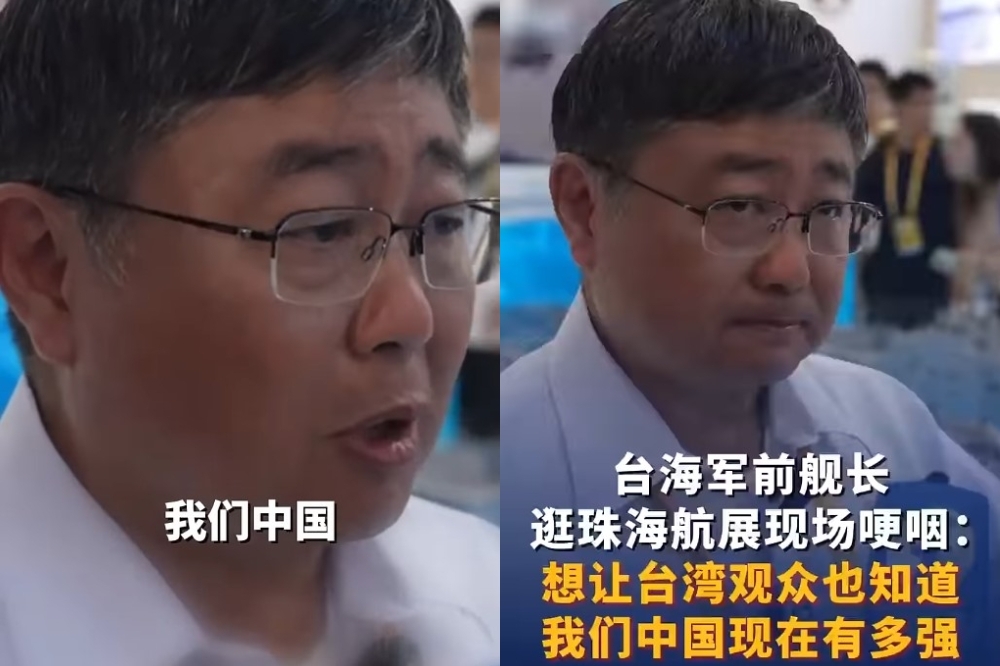上報 Up Media
toggle- 最新消息 蓋茲買春退出 司法部長改由「佛州首位女檢總」出任 2024-11-22 08:25
- 最新消息 【有片】普丁證實用最新「榛果樹」飛彈攻擊烏國 具MIRV技術可攜多枚彈頭 2024-11-22 07:50
- 最新消息 陳嘉宏專欄:「勞動部慘案」的背後是賴政府失能 2024-11-22 07:02
- 最新消息 投書:當APEC的C位不是美國而是中國 2024-11-22 07:00
- 最新消息 2024 高雄城市咖啡節週末登場!集結 60 家咖啡與甜點店 冰滴、手沖、咖啡酒通通有 2024-11-22 07:00
- 最新消息 投書:藍白已是不分青紅皂白踐踏台灣民主法治 2024-11-22 07:00
- 最新消息 謝宜容起碼幹掉賴清德半壁江山 2024-11-22 00:02
- 最新消息 投書:立院惡鬥 只會讓更多科技人企業人不敢投身政壇 2024-11-22 00:00
- 最新消息 勞動部稱謝宜容失聯明天不出面 吳母淚控:霸凌太過分、太惡毒 2024-11-21 22:05
- 最新消息 俄烏戰況恐升級 烏克蘭是否有能力攔截ICBM 2024-11-21 21:50

台塑在美國路易斯安那州黑人人口最密集的聖詹姆斯郡興建大型石化園區,引起當地居民抗議。(圖片擷取自StopFormosaPlastics.org)
台塑計畫斥資數十億美元,在美國路易西安納州黑人人口分布最密集的聖詹姆斯郡,興建大型石化園區。但這項計畫,目前正遭逢公眾反對及合法與否的挑戰,這對台塑自己、對其投資者與對美台關係而言,都可能付出極大代價。
在少數或弱勢族群居住地,執行可能導致環境汙染的建設或計畫案時,該地族群無力抵抗,即可能面臨「環境種族主義」爭議,這一環節近來在美國逐漸受到關注。台塑在聖詹姆斯郡的石化園區建案正是牽涉了環境種族主義,因為黑人占該地人口達91%,而當地居民早已飽受損害健康的工業汙染折磨。一位空汙模擬專家為調查報導媒體「ProPublica」所做的研究報告透露,該區空氣的致癌物含量,已比美國99.6%的工業區還高;而台塑設廠計劃,更將導致有毒汙染物加倍。園區將釋放出大量環氧乙烷,可能導致淋巴球性白血病、乳癌與其他癌症,並造成孕婦流產。廠房所在的聖詹姆斯郡,正座落於化工廠高度聚集、以「癌巷」之名而為人所知的密西西比河下游河谷沿岸。
這項於2018年宣布的建案,又稱「陽光計畫」,已獲發每年可排放800公噸有毒化學物質的「空氣排放許可」,但這份許可,目前正處於訴訟階段。路易西安納區域法院法官特魯迪‧懷特就命令該州環境項目許可核發機構,調查台塑建案的有毒物質排放,是否將對該區帶來過度沉重的負擔。懷特法官明確表示,若有分析報告發現,建案會為該區帶來無法接受的公共健康風險,則空氣排放許可將被駁回,而環境種族主義就是其中一項考量因素。
因此在與本地社區共同解決居民擔憂的同時,碰上法院發令的評估審查,台塑勢必得和路易西安納州官員合作。面對社區就這項環境許可所遞出的訴訟戰帖,法官將把建案牽涉到的環境種族主義議題視為最終裁決時必須檢視的一部分。
台塑選在一個原本居民就飽受工業汙染之苦、卻還得讓他們承擔顯著健康風險的地點,計畫興建超大型石化園區,此舉並不明智,將對台塑本身和其投資者造成財務上的風險。
國際首屈一指的信貸評價機構穆迪,最近出版的研究報告就指出,他們發現種族與收入不平等問題,正對美國政經體系造成損害。報告內容表示:「美國黑人社區所處的地位不平等,在目前仍處於現在進行式的不平等問題中,具有顯著且持久不消的特徵,此問題印證信用相關的社會危機,並仍在持續惡化。」報告中更指出,為防止美國財力受侵蝕,要求決策者採取有效行動以因應這些危機的呼聲將越來越高。
台塑的挑戰在於,這項建案不僅會使該區汙染程度惡化,還會使折騰路易西安納州與美國全域已久、幾近根深蒂固的政治與種族對立更為嚴重。即便法院允許台塑動工與排放廢氣,問題都將持續存在;地方上公開組織起來的反對運動也不可能消失。台塑目前面對的,是該區為反對毒物汙染帶來的不平等及種族主義,進而下定決心發起的抗爭。路易西安納州的黑人社區應當得到真正的經濟解方,而非對生命構成危害的汙染。
最近,台塑才宣布,要推遲承擔此項建案財務的最終投資決定。對台塑而言,現在已不容再誤判政治氛圍,他們應當放棄這項既不明智也不正義的建案,並提出對集團未來更好的計畫。
※本文作者湯姆‧桑季洛為美國能源經濟與經濟分析研究所(IEEFA)財經分析總監,曾在公共與民間財經單位服務30年,包括任職過紐約州第一副主計長,任內曾監管1560億美元的養老基金及2000億美元的地方債券計畫/蘇珊娜‧瑪泰伊為美國能源經濟與經濟分析研究所(IEEFA)的政策分析師與律師(畢業於耶魯法學院),在公共利益相關的法規政策領域有30年工作經驗。瑪泰伊過往也曾在紐約州環保署擔任區域指揮官。
原文如下:
Formosa Plastics petrochemical project in United States faces new scrutiny over environmental racism
By Tom Sanzillo and Suzanne Mattei
Formosa Plastics Corp.’s plan to build a multibillion petrochemical complex in a mostly Black community in St. James Parish, Louisiana, is facing public opposition and legal challenges that could prove costly for the company, its investors, and U.S.-Taiwan relations.
The issue of environmental racism has become a topic of rising concern in the U.S. It is relevant to this project because Formosa plans to build the complex in a district where the population is 91 percent Black and already suffers from unhealthy industrial pollution. A study by an air modeling expert prepared for a news consortium’s investigative report revealed the community’s air has more cancer-causing chemicals than 99.6 percent of industrialized areas of the United States, and the Formosa project would double the toxic pollution. For example, it would release large amounts of ethylene oxide, which can cause lymphocytic leukemia, breast cancer and other cancers, and may cause miscarriages in pregnant women. St. James Parish, where the facility would be located, is situated along a river corridor known as “Cancer Alley” for the high number of chemical plants in the area.
The project, announced in 2018, has been dubbed “The Sunshine Project” and has obtained air permits that will allow it to release 800 tons of toxic chemicals into the air every year. The permits, however, are being appealed. Louisiana District Judge Trudy White has ordered the state’s environmental permitting agency to investigate whether the Formosa project's toxic emissions would have an overly burdensome impact on the community. The judge made it clear that the permit would be denied if an analysis finds that the public health risk is unacceptable, and that racism is a factor. Formosa will have to cooperate with Louisiana officials in the court-ordered review, while working with the local community to address their concerns. The judge will consider the issue of racism as part of her final ruling on the community’s challenge to the environmental permit.
Formosa’s plan to build a petrochemical megacomplex at a location that presents a significant health risk to residents who already suffer from industrial pollution is ill-advised. But the problem also poses a financial risk for Formosa and its investors.
Moody’s, a leading credit-rating firm, recently published a study that found racial and income inequality are damaging to U.S. political and economic systems. It states, “The unequal position of the Black community in the U.S. is a salient and presistent feature of the inequality dynamic that exemplifies and excerbates credit-relevant social risks.” It noted a for policymakers to take effective action to address these risks in order to prevent “erosion” of America’s financial strength.
The challenge for Formosa Plastics is that this project would not only worsen the dangerous levels of pollution in the community but also add to the deeply rooted political and racial divisions that currently afflict the state of Louisiana and the United States as a whole. Even if the court allows Formosa to move forward, these problems will persist, and the organized public opposition in this community is unlikely to go away. The company is facing the determination of a community to fight an unfair, racist burden of toxic pollution. Louisiana’s Black community deserves real economic solutions, not more life-threatening pollution.
Formosa Plastics recently announced that its board is delaying making a Final investment Decision(FID), which would be a final financial commitment to the project. This is not the right time for Formosa Plastics to misjudge the political climate. It should instead abandon this unwise and unjust project, and develop better plans for its future.
Tom Sanzillo is director of financial analysis at the US-based Institute for Energy Economics and Financial Analysis (IEEFA). Sanzillo has 30 years of experience in public and private finance, including as a first deputy comptroller for New York State, where he oversaw a $156 billion pension fund and $200 billion in municipal bond programs.
※Suzanne Mattei is an IEEFA policy analyst and attorney (Yale Law School) with 30 years of experience in public interest law and policy. She is a former regional director for the New York State Department of Environmental Conservation.
熱門影音
熱門新聞
- 【懶人包】勞動部公務員疑遭職場霸凌輕生 事件始末「時間軸、手段、調查結果」一次看懂
- 起底謝宜容!傳身家背景雄厚「善做公關」 先生和綠營高層有交情
- 一元特典!YOASOBI「超現實」小巨蛋演唱會釋出「零星票券」,11/24 採實名制一般販售
- 【世界棒球12強賽】滿足「2條件」台灣確定晉級4強 今晚是關鍵
- 先搶先贏!Ado 五月林口體育館演唱會採實名制入場,11/19 輸入「指定代碼」可優先預購
- 【內幕】T112步槍裝彈器採購案疑專利侵權 以色列向軍備局寄存證信函
- 王一博金雞獎典禮被抓包視線離不開趙麗穎 網揭兩人4年戀情無法曝光背後真相
- 勞動部涉職場霸凌不只謝宜容? 何佩珊:與輕生者中間還有2個主管










